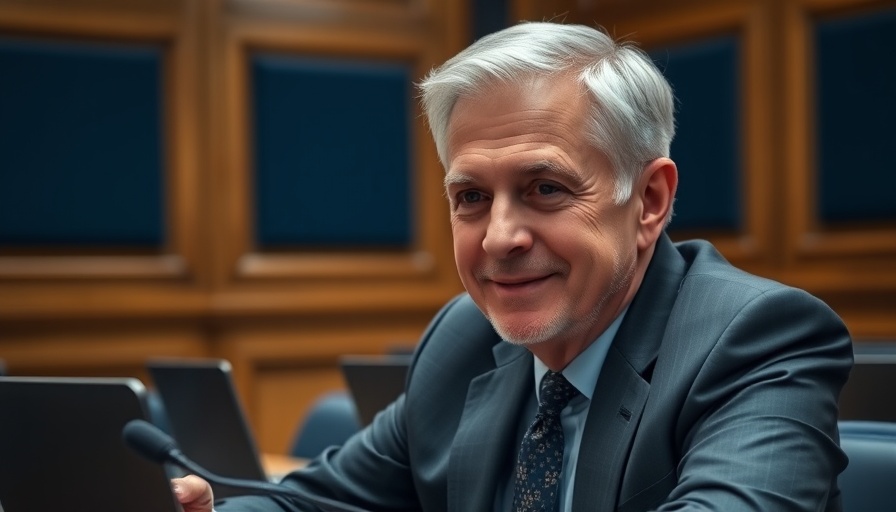
The Dark Side of Teachers' Pension Funds
In a troubling revelation, newly uncovered text messages indicate a potentially compromising relationship between an investment firm and members of Ohio's State Teachers Retirement System (STRS). The messages suggest that individuals affiliated with the QED Associates investment firm collaborated closely with a former board member, Wade Steen, guiding him on what questions to pose and what documents to promote.
What the Texts Reveal About Governance
The communication disclosed in a lawsuit led by Attorney General Dave Yost highlights a serious breach of fiduciary duty. It raises questions regarding the motivations behind board decisions and whether personal interests overshadow the well-being of the thousands of retirees relying on the STRS fund. Yost’s filing accuses Steen and current board chair Rudy Fichtenbaum of engaging in a ‘contract steering scheme’ that could directly profit them, diverting attention from the primary purpose of their roles.
Understanding the Implications for Educators
The STRS functions as a safety net for teachers who have dedicated their careers to education. The ramifications of the alleged actions not only affect the financial stability of the fund but also the trust educators place in those managing their hard-earned pensions. This breach could lead to a loss of confidence among teachers, adversely affecting their livelihood and retirement security.
The Ongoing Investigation: What's Next?
As the case unfolds in court, several critical questions linger: Can Steen and Fichtenbaum be held accountable for past actions? Will the Ohio court side with the Attorney General's call for their permanent removal from the STRS board? Given the complexity of the alleged schemes, legal experts suggest that this case may take months to resolve — all while teachers continue to navigate an already intricate retirement system.
Trust Is Fundamental: A Call for Transparency
This unfolding scenario is a wake-up call for both educators and investors involved in pension systems. It reinforces the fundamental need for transparency in governance and decision-making, particularly in fiduciary contexts. Teachers deserve assurance that their retirement funds are managed with integrity, devoid of outside influence that might compromise their long-term financial health.
What Can Pension Holders Do?
To safeguard against potential misconduct, educators should advocate for increased transparency and accountability within boards that manage pension funds. Engaging with local lawmakers and forming coalitions among teachers can amplify these calls for reform. Only through collective action can the educators in Ohio ensure their voices are heard above the noise of corruption.
A Community of Trusted Leaders
Ultimately, the fight for responsible management of pensions is not just a legal battle; it’s a moral one as well. As educators, trusting leaders means relinquishing a degree of control, but trust must never be blind. It’s time for teachers across Ohio to demand justice and restore integrity to their pension system. We owe it to ourselves and to future generations of educators.
As events continue to unfold in this significant case, stay informed and engaged. The strength of our community lies in our shared values and relentless pursuit of fairness. Together, we can ensure that the voices of our teachers resonate with the respect they deserve and the integrity our pension fund must embody.
 Add Row
Add Row  Add
Add 




 Add Row
Add Row  Add
Add 








Write A Comment